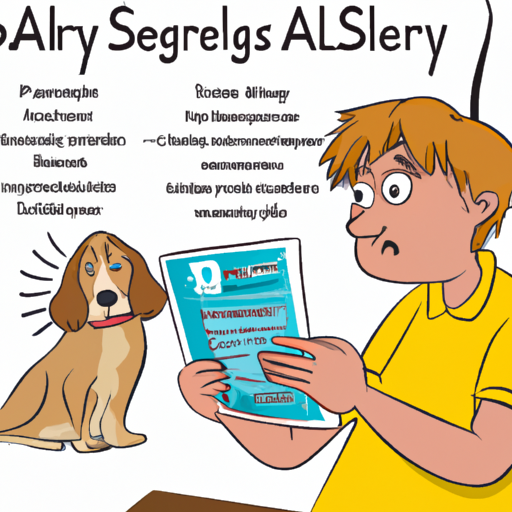“`
What Are the Symptoms of Chicken Allergy in Dogs?
Understanding Food Allergies in Dogs
As a dog owner, it’s crucial for you to understand that dogs, just like humans, can experience food allergies. Chicken, among other food types, is one of the most common allergens for dogs. Food allergies in dogs can cause uncomfortable symptoms and if left untreated, may lead to serious health problems. The key to managing these allergies is to recognise the symptoms early and take action.
Recognising Symptoms of Chicken Allergy in Dogs
Your furry friend cannot tell you what’s wrong, but they can show you. It’s up to you, the caregiver, to pick up on these signs. Here are some common symptoms you should look out for:
1. Digestive Issues: This could include diarrhea, vomiting, and gassiness. If your dog is suddenly experiencing digestive problems after eating chicken, this could indicate a chicken allergy.
2. Itchy Skin: Excessive itching, particularly around the ears and paws, can be a sign. Watch out for constant scratching, biting, and licking.
3. Chronic Ear Infections: A sign of a possible food allergy could be repeated ear infections.
4. Poor Coat Health: If your dog’s coat has become dull or coarse, or if they’re shedding excessively, this may be a symptom.
5. Behavioral Changes: These could include lethargy, aggression, or changes in appetite.
| Symptoms | Description |
|---|---|
| Digestive Issues | Diarrhea, vomiting, gassiness |
| Itchy Skin | Excessive scratching, biting, and licking |
| Chronic Ear Infections | Repeated infections |
| Poor Coat Health | Dull or coarse coat, excessive shedding |
| Behavioral Changes | Lethargy, aggression, changes in appetite |
How to Manage Chicken Allergies
Once you’ve identified the symptoms, the next step is to figure out how to manage them. The most effective way to manage a chicken allergy in dogs is to eliminate chicken from their diet. This includes all forms of chicken, including those found in dry kibble, wet food, and treats. You might also look into hypoallergenic dog foods.
The Importance of a Vet Visit
If you suspect that your dog has a chicken allergy, it’s important to schedule a vet visit as soon as possible. Your vet can run tests to confirm the allergy and guide you on the best course of action. Remember, don’t try to diagnose your dog on your own. Always seek professional advice.
Frequently Asked Questions
Q: Can chicken allergy in dogs be cured?
A: No, but it can be managed effectively by avoiding chicken in their diet.
Q: How long does it take for symptoms to appear after eating chicken?
A: Symptoms can appear anywhere from a few hours to a few days after eating chicken.
Q: Does cooking the chicken remove the allergens?
A: No, cooking does not remove the allergens present in chicken.
Q: Can a dog develop a chicken allergy later in life?
A: Yes, a dog can develop food allergies at any age.
Remember, as a caregiver, you have the power to ensure your dog’s health and happiness. Be vigilant about observing any changes in your dog’s behavior or physical condition. Your dog relies on you, and with your care, they can live a healthy, happy life, even with a chicken allergy.
“`



